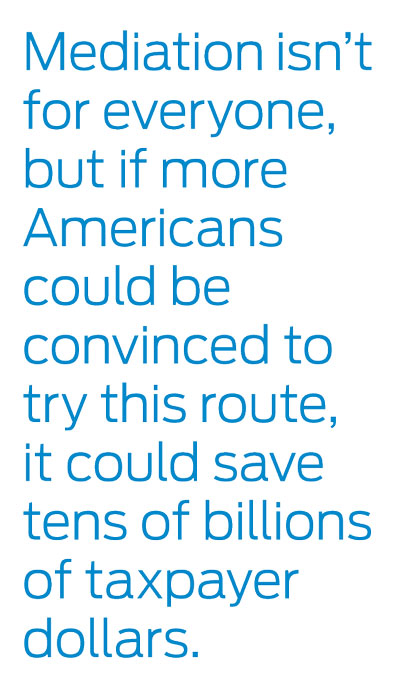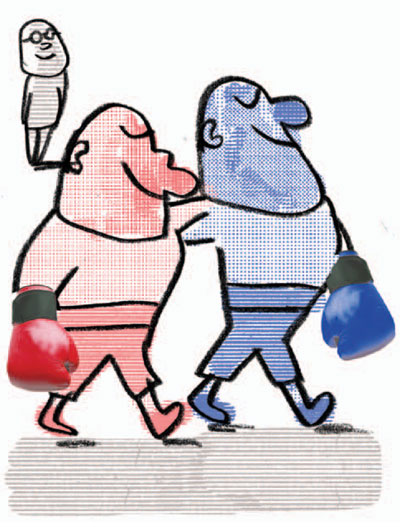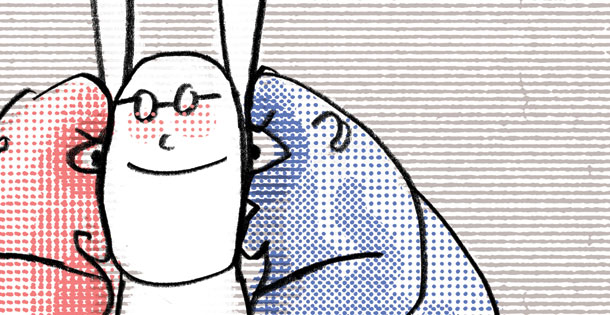There are a number of reasons we take to the courts when we feel we’ve been wronged. For starters, no one likes to be the victim of a perceived injustice. In fact, a sense of fairness might be considered an innate human characteristic. In 1800, a feral child was found in Aveyron, France. The 12-year-old boy, Victor, had lived alone in the wild his entire life. A young physician, Jean Marc Gaspard Itard, worked with the boy for five years and, using a system of punishments and rewards, trained him not to steal. At times, Itard punished Victor for no reason, and on these occasions the child reacted violently. The boy could accept punishment when fairly administered, but protested fiercely when falsely accused.

So, there’s the desire for justice, but we have other countervailing interests as well. Costs are a big one. How much am I going to win? How much is it going to cost me? Also, how long will it take? What are my chances of losing? What if I lose? Will the rancor of a lawsuit interfere in my ability to communicate with the other party after the case is over? These are just a few of the legitimate inquiries that we may have prior to engaging in a lawsuit. Why is it that we frequently gloss over these questions before deciding to sue?
One answer may be that we are hard-wired for competition. Neurologists know that the area of the brain that is implicated when we are engaged in a competitive act is the amygdala, the center of our limbic pleasure-pain system. This pleasure-pain system accounts for more than 90 percent of our decision-making. We may tend to get involved in lawsuits — even if it is not in our best interest — because it is exciting to do so. When we are excited, dopamine, adrenaline, norepinephrine, and other chemicals are released into our system. These feel-good and stimulating chemicals make it feel thrilling to be engaged in the fight. And trial-based slugfests are particularly captivating — witness the allure of courtroom dramas to hold our attention, everything from Perry Mason to Judge Judy.
The thrill of competition can override our rational responses. In a study of more than 2,000 cases by Decision Set, a firm that advises clients on litigation decisions, lawyers for plaintiffs and defendants were asked to evaluate how confident they were in prevailing. In 85 percent of the cases, at least one of the parties wrongly calculated its chances of success.
What is the alternative? Walk away from the injustice? Let the bully kick sand in my face? We often perceive a dispute in black and white terms, but in his seminal classic Getting To Yes, the late Roger Fisher, a Harvard Law professor, articulated the critical difference between our interests and our positions. As he explained, our positions are what we say we want, our interests are the underlying reasons for why we want what we want. As parties to a contest, we frequently get stuck in our positions. One way to successfully resolve a controversy is to focus on our underlying interests.
Which brings us to mediation. Simply put, it’s an idea that works. If put into more widespread practice, mediation could take some of the burden off our courts. Not a capitulation to the bully, nor even a Solomon-like split-the-difference approach, mediation frequently allows both sides to get what they need at far less cost and in far less time than litigation.
Mediation is a confidential process, in which an experienced negotiator acts as a go-between, helping the parties communicate with each other in a way that’s nearly impossible in winner-take-all litigation. Unlike in court (where the judge’s decision is final), the mediator does not impose a resolution. Rather, he or she guides the two parties to common ground. There’s no requirement that the sides reach an agreement — at the end of the process, if not satisfied, the parties are free to walk away and sue if they see fit. But if you need evidence that the system works, about 70 percent of cases that go to mediation reach an equitable solution. (The success rate reaches nearly 90 percent when the parties accept mediation voluntarily. With court-ordered mediation, the success rate hovers closer to 50 percent.)

As discussed, a court-resolved controversy will usually have a winner and a loser. A mediator, on the other hand, will try to find options where the result is even better than fair. An example put forth by Fisher is the case of two siblings fighting over the last orange in the kitchen. A fair result would seem to be to cut the orange in half. But suppose one sibling wanted the orange for the rind to bake a cake, while the other was thirsty and wanted the juice. An efficient solution would be for one sibling to have the rind and the other to have the juice. That’s a classic win-win scenario. In the heat of a court battle, the contestants for the orange might never get to an understanding of why each wanted the orange and thus they might both demand the whole fruit.
Mediators can also help to frame settlements as the true gain that they often are, rather than as surrenders. We tend to devalue an offer from another party, if only because it appears to be something the other side is willing to cede. In a study, Israeli citizens were shown a peace proposal which had been actually proposed by Israel. When the participants were told the proposal was Palestinian, they rated it lower than if they were told the identical proposal came from the Israeli government.
Despite all the benefits, mediation is the exception rather than the rule. By some estimates, only between 2.5 and 10 percent of court cases today are referred for mediation. Mediation isn’t for everyone, but if more Americans could be convinced to try this route, it would take pressure off our overloaded court system and save tens of billions of taxpayer dollars.
Why should parties agree to mediation? There is very little to lose by trying and much to gain. Whether mediation is right for you is a question that you should discuss with your attorney, as there are many factors to consider. But the potential of mediation both to satisfy your own interests and at the same time lessen the load for our overworked courts should not be ignored.
Become a Saturday Evening Post member and enjoy unlimited access. Subscribe now



